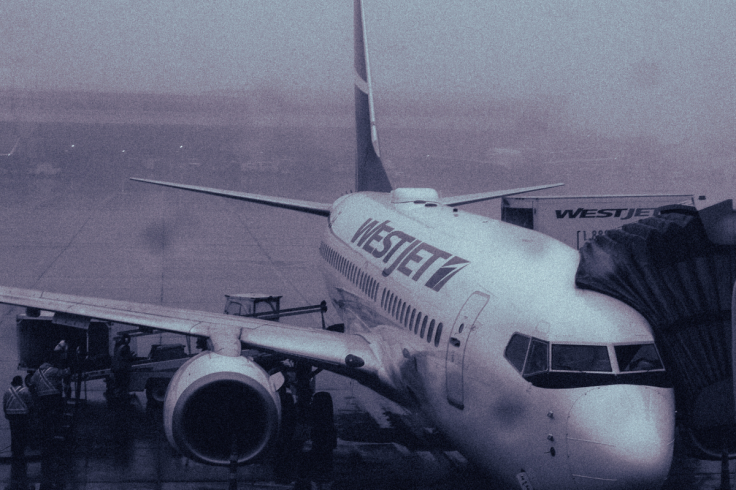Could WestJet Cybersecurity Incident Mean More Planes Could Go Down In The Future? Details We Know So Far
Airline confirms breach of internal systems and app; investigation ongoing with authorities

WestJet has confirmed it was the target of a cybersecurity breach affecting its internal systems and mobile app, prompting an investigation involving law enforcement and Transport Canada.
The airline said the incident, which restricted access for several internal users, has not disrupted flight operations or safety protocols. However, the breach has renewed concerns over the airline industry's vulnerability to increasingly sophisticated cyber threats.
In a statement posted Friday, WestJet said its cybersecurity team is working to contain the breach, protect sensitive data, and determine the scope of the attack. 'It is too early to speculate on the details,' the airline noted, adding that it would release further information as it becomes available.
By Saturday, WestJet confirmed operations were running normally, though questions remain about the nature of the breach and what it could mean for future attacks on airline infrastructure.
A Growing Threat to Aviation
Experts warn that while this latest incident did not affect aircraft control systems, it highlights a broader concern regarding future plane crash incidents: airlines' increasing reliance on digital networks to manage everything from maintenance schedules to passenger records.
'Aviation systems are becoming more connected yearly,' said cybersecurity analyst Mark Devlin. 'The more complex the network, the more opportunities hackers have to find vulnerabilities.'
Though this attack appears limited in scope, cybersecurity researchers say it's a wake-up call. Airlines must stay ahead of emerging threats to prevent future breaches that could jeopardise critical systems.
WestJet Not Alone
WestJet's breach is part of a wider pattern across Canada. In recent years, multiple institutions and corporations have faced ransomware attacks and data breaches.
In late 2024, PowerSchool, a software provider for school boards, disclosed a data breach that affected students' and staff's records. The company later admitted paying a ransom to secure the compromised data.
Other major incidents include a ransomware attack on the Calgary Public Library in October 2024 and a breach that forced London Drugs to temporarily shut down operations. Calgary-based Suncor also experienced system outages and payment disruptions at Petro-Canada outlets following a cyber incident in 2023.
WestJet itself has previous experience with data exposure. In 2017, personal details of WestJet Rewards programme members were compromised after a third-party data leak.
The WestJet cybersecurity breach comes just days after the fatal crash of an Air India Boeing 787 that killed more than 240 people. While there is no evidence linking the Air India incident to a cyberattack, aviation analysts say the timing of the two events has raised concerns about the broader risks posed by digital vulnerabilities in commercial aviation. Authorities continue to investigate the Air India crash, with all potential causes—including possible technical or system failures—under review.
Investigations Ongoing
Transport Canada is now working alongside law enforcement and WestJet's internal teams to trace the source and impact of the breach. As of now, officials have not linked the incident to any foreign entities or cybercrime groups.
While no evidence exists that the breach affected flight safety or operational control systems, analysts caution that such risks could grow as airline technology becomes more interlinked.
'Any compromise of digital systems tied to flight planning or aircraft diagnostics could, in theory, create serious problems down the line,' Devlin warned.
While WestJet's flights operate normally, the incident highlights how fragile digital infrastructure can be—even in high-stakes industries like aviation. As investigations continue, the airline industry may be forced to look harder at how prepared it is for the next major cyber threat.
And as aviation continues to embrace cloud-based technology and automation, the question may no longer be if hackers will attempt to bring down flight systems, but when. And when that moment comes, both airlines and regulators will need to be ready.
© Copyright IBTimes 2025. All rights reserved.





















